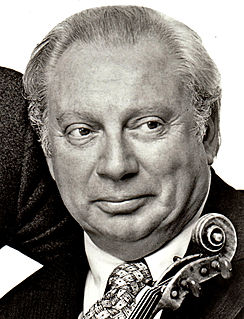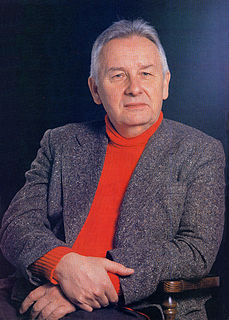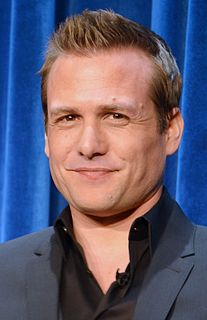A Quote by Isaac Stern
A great conductor possesses that certain charisma and talent that demand the ears and the attention of an audience. I can't tell you how that happens, but I'm sure it has an inner basis that is never learned.
Related Quotes
Normally classical music is set up so you have professionals on a stage and a bunch of audience - it's us versus them. You spend your entire time as an audience member looking at the back of the conductor so you're already aware of a certain kind of hierarchy when you are there: there are people who can do it, who are on stage, and you aren't on stage so you can't do it. There's also a conductor who is telling the people who are onstage exactly what to do and when to do it and so you know that person is more important than the people on stage.
Rock 'n' roll says, 'Hey, man, this is where you can be normal,' and then after a while you grow up and you go, 'Wait a minute. Oh, by the way, I learned how to do these cool things, but I never learned how to speak my mind. I never learned how to express myself emotionally. I should have been paying attention more.'
I do not choose my listeners. What I mean is, I never write for my listeners. I think about my audience, but I am not writing for them. I have something to tell them, but the audience must also put a certain effort into it. But I never wrote for an audience and never will write for one, because you have to give the listener something and he has to make an effort in order to understand certain things.
Perhaps the chief requirement of [the conductor] is that he be humble before the composer; that he never interpose himself between the music and the audience; that all his efforts, however strenuous or glamorous, be made in the service of the composer's meaning - the music itself, which, after all, is the whole reason for the conductor's existence.
I don't have an audience in mind when I write. I'm writing mainly for myself. After a long devotion to playwriting I have a good inner ear. I know pretty well how a thing is going to sound on the stage, and how it will play. I write to satisfy this inner ear and its perceptions. That's the audience I write for.
I have heard Ori Kam on several occasions over the last few years and have always been deeply impressed with his playing. He possesses a rare combination of musical talent, technical facility, intelligence, and charisma, and he is undoubtedly one of the most extraordinary young artists I have heard in recent years.
Grown-ups love figures... When you tell them you've made a new friend they never ask you any questions about essential matters. They never say to you "What does his voice sound like? What games does he love best? Does he collect butterflies? " Instead they demand "How old is he? How much does he weigh? How much money does his father make? " Only from these figures do they think they have learned anything about him.
In short, there are mysteries of science and of soul that will never be understood no matter how hard we measure, no matter how strongly we believe, no matter how deep our think tanks and how high our aspirations. But as anyone will tell you—for we all know this within our hearts—the impossible happens and grand cosmic mysteries are solved on a regular basis, although most of the time the solutions lead to even greater mysteries.
There's a difference between talent and skill. You might have writing talent, but skill is learned. You have to practice. I remain teachable. I was sure that I didn't know everything. People who work with me will tell you I don't think I know everything. I watch people sink around me thinking that they knew everything.




































